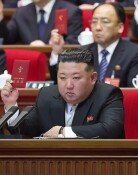[Editorial] Deputy Prime Minster Kim Should Present Specific Educational Polices
[Editorial] Deputy Prime Minster Kim Should Present Specific Educational Polices
Posted January. 28, 2005 22:55,
New Deputy Prime Minister and Education Minister Kim Jin-pyo said yesterday that he will maintain the principle of three bans regarding the college entrance system, including high school standardization and a ban on examinations administered by individual colleges designed to select students on their own. Apparently mindful of criticism from educational circles that he would place economic logic before education, Kim also said, As I assume the responsibilities of the head of education for the country, I will emphasize the educational aspect and the public aspect of education.
It is hard to find anything new in the deputy prime ministers press conference other than the repeated mentioning of the existing policies. Considering the surprise appointment of the former deputy prime minister of economy as the new deputy prime minister of education and its repercussions that have reached every corner of society, the press conference was not only typical but also short on substance.
Deputy Prime Minister Kim should specify what he will do to enhance the countrys educational competitiveness. President Roh Moo-hyun named him to the post, saying, A university should be an industry. That is a clear statement that the president wants to transform the nations education system into a user-friendly system, which means an education system that users like business and parents want, rather than providers including teachers and schools. This is a sea of change in the concept of educational policies. President Roh also said yesterday, The education sector doesnt seem to understand why I appointed an official with an economic background as deputy prime minister of education.
Under the circumstances, Deputy Prime Minister Kim should be specific about how he will draw up and implement policies. It is insufficient to merely express his will to do well. He neither has ample time given that restructuring of colleges is an urgent issue. Although this is shortly after he was inaugurated, he should put forward his plans as soon as possible.
This is urgent also to persuade educational circles that oppose him. It cannot be seen as reasonable that educational circles are against him only because he is an outsider of education. In a way, however, the overall opposition from the entire education sector exists because it is not clear what plans are on the mind of this deputy prime minister with an economic background. Kim should be aware that he will not be able to perform his duties smoothly in the current situation in which he is given the cold shoulder by the educational circles.







